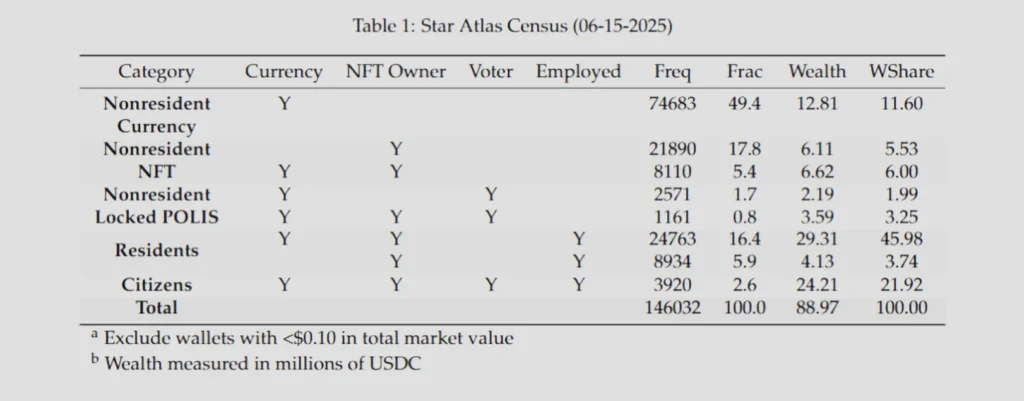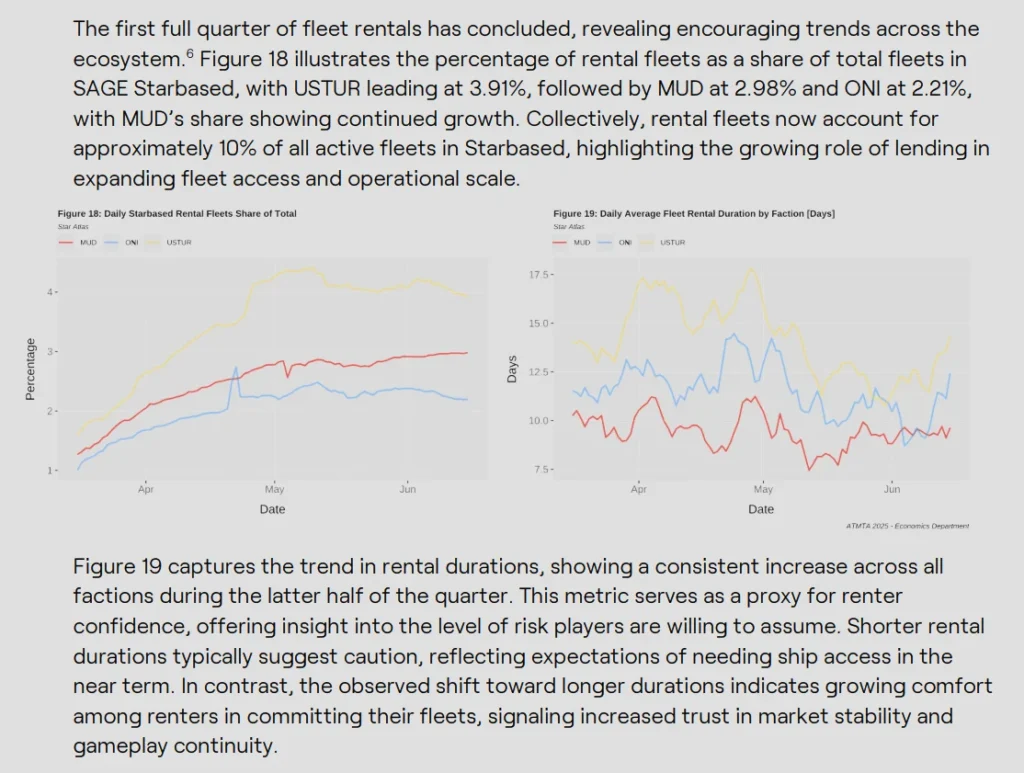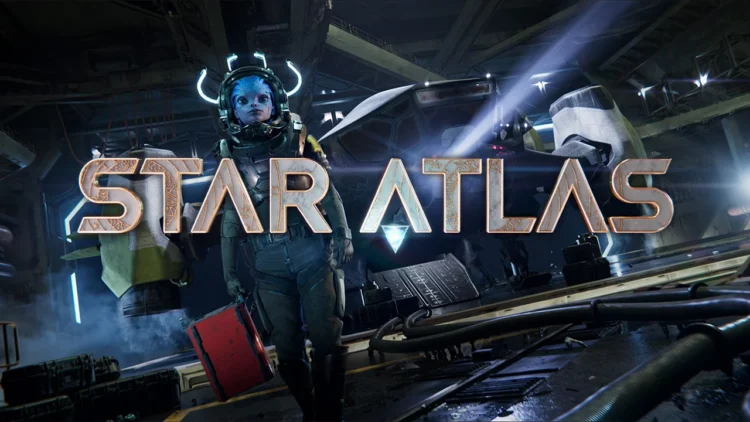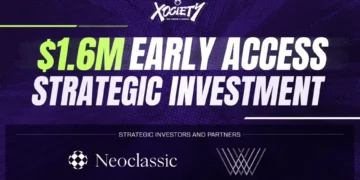Quick Take
- Players locked 2.1B ATLAS in Q2, setting a new high for token retention
- Citizens and residents now hold over 70% of all in-game wealth
- Holosim and fleet rentals increased access and specialization
ATLAS Locking Sets New Record
Star Atlas released its Q2 2025 economic report, highlighting increased ATLAS locking and broader shifts in player behavior. The ATLAS token locker reached a record 2.147 billion locked tokens, surpassing the previous all-time high of 2.141 billion. According to the data, only 15 percent of daily Faction Infrastructure Contract (FIC) redeemers swapped their emissions on the same day, indicating a lower frequency of immediate sell activity.
Daily ATLAS emissions grew 41 percent compared to the previous quarter, averaging 11.4 million per day. Despite this increase, swap volume remained modest and represented around 5 percent of total decentralized exchange volume.
The emission-to-burn ratio ranged from 3.3 to 6.2 ATLAS emitted for every one token burned. Data from the locker showed a growing trend of players locking tokens in response to lower market activity. Whale-level deposits contributed to these increases on specific days.
Shift in Wealth Toward Active Participants
The Star Atlas Census reported that employed user groups now hold the majority of ecosystem wealth. Citizens and residents control over 70 percent of in-game value. During Q2, the resident group saw its aggregate wealth increase 17.6 percent, while citizens gained 15.6 percent. Both groups added over 800 new users collectively, driven by population shifts out of the non-resident segment.
Non-residents experienced sharper declines in wealth, with non-resident currency holders losing 21.5 percent. NFT holders in that category showed more stability, as USDC-paired NFT prices remained relatively insulated from volatility. Locked POLIS users also saw less loss, with staking rewards helping to offset exposure.

Fleet Rentals and Ship Crafting Activity Expand
Rental fleets grew to represent 10 percent of all active fleets in Starbased. The ONI faction recorded the highest hourly rental wages, peaking at 2,578 ATLAS per hour. Fleet rental durations increased in the latter half of the quarter, suggesting players extended their commitment windows.
Crafted ships are being integrated into rental activity. Player-crafted ships generated nearly 10,000 ATLAS in daily output by the end of the period. These ships made up a smaller share of marketplace volume but contributed directly to operational gameplay. The xSmall ship class saw the highest price increase, rising 12 percent over the quarter and leading in trading volume among rental-relevant classes.
Ship price volatility remained high enough to support trading strategies. Medium-class ships showed the most pronounced price movements, while small ships were more stable.

Free-To-Play Holosim Opens Onboarding Path
Star Atlas Holosim, a free-to-play version of SAGE Starbased, went live during the quarter. While launched late in the reporting period, it showed early signs of traction. Holosim maintained a user base that reached 36 percent of the mainnet player count and generated about 12 percent of total in-game transactions, despite having no token incentives.
Player activity per session increased during the second half of the quarter. Holosim is positioned as an entry point for new users with no blockchain requirements. Transaction and user count comparisons suggest that lower-friction access may support broader adoption alongside core game modes.
Economic Output Slowed with End-Quarter Recovery
Total in-game GDP contracted to $870,876 for the quarter, a 71 percent decrease from the prior period. GDP per capita fell 64.7 percent to a daily average of $4.45. By the end of the quarter, economic activity showed signs of recovery.
USTUR led in per capita GDP at $7.35, while ONI retained the highest overall GDP at $328,038. Faction-level variation in output highlighted differences in fleet deployment and productivity rather than population growth.
Governance Infrastructure Supports Participation
The report follows earlier updates on Star Atlas DAO governance. In 2023, the ecosystem launched PIP-1, the first POLIS Improvement Proposal. It established on-chain voting procedures, a constitution, and the legal role of the Star Atlas Foundation. These systems now govern how changes to the metaverse are proposed, debated, and implemented.
DAO participants can engage through the governance portal and are required to lock POLIS to gain voting rights. Governance design has focused on transparency and direct participation, allowing players to take part in shaping the future direction of the game.







